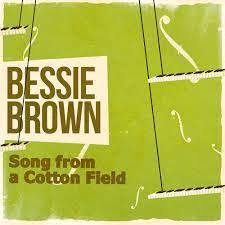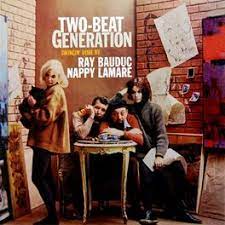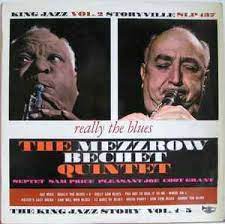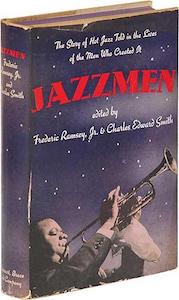
Daily Dose Of Jazz…
Edward Anderson was born on July 1, 1910 in Jacksonville, Florida. He began playing trumpet at age ten, taking his first lessons with the bandmaster at Florida State College. At 15 he went to St. Emma College in Belmead, Virginia\ and was principal trumpet in the college band.
He played with Luckey Roberts at the Everglades Club in Palm Beach, Florida and traveled to New York City with him in the spring of 1926. Roberts introduced Anderson to Clarence Williams, who began using him on recordings. He recorded with blues and jazz singer Bessie Brown on her album Song From A Cotton Field in that year. During the period between 1927-28, Anderson worked with drummer George Howe and Luis Russell at the Nest Club, and with Jelly Roll Morton at the Rose Danceland.
1929 saw Ed subbing for Louis Armstrong at Connie’s Inn while Armstrong was in the revue Hot Chocolates. He played with Benny Carter at the Arcadia Ballroom, Charlie Johnson, and Bingie Madison, then joined The Mills Blue Rhythm Band from 1930 until mid 1934. He later played in Charlie Turner’s Arcadians, then joined Hazel Scott’s big band early in 1939.
After a stint with Frankie Newton’s band at the Mime Club in New York in 1941 he left fulltime music. Eventually Ed Anderson, who often went by Andy, gave up the trumpet, but maintained a residence in the city. The date of his death is unknown at this time.
More Posts: history,instrumental,jazz,music,trumpet

Daily Dose Of Jazz…
Ray Bauduc was born June 18, 1906 in New Orleans, Louisiana and was the son of cornetist Jules Bauduc, his older brother was a banjoist and bandleader, and his sister was a pianist. His youthful work in New Orleans included performing in the band of Johnny Bayersdorffer, and on radio broadcasts. His New Orleans origin instilled in him a love for two-beat drumming, which he retained when he played with Bob Crosby’s swing-era big band.
Moving to New York City in 1926 he joined Joe Venuti’s band. During the 1920s he recorded with the Original Memphis Five and the Scranton Sirens, which included Tommy and Jimmy Dorsey. His time with the Bob Crosby Orchestra brought him national fame and Bauduc and bassist Bob Haggart composed two hits for the orchestra, South Rampart Street Parade and Big Noise from Winnetka, which has become a jazz standard.
After his discharge from the Army in 1944, he and former Crosby group leader Gil Rodin formed a short-lived big band. He toured with a septet in 1946 and also worked in Tommy Dorsey’s orchestra for a couple of months that year. By 1947, he joined Bob Crosby’s new group, then left to play with Jimmy Dorsey where he stayed for the next two years. He freelanced on the West Coast for a couple of years before joining Jack Teagarden in 1952. In 1955, he formed a band with Nappy Lamare which found considerable success, touring nationally and recording several albums.
From 1960 Ray went into semi-retirement and relocatred to Bellaire, Texas but visited New Orleans in 1983. He appeared occasionally at Crosby Orchestra reunions, worked with Pud Brown on several recordings, and played with the Market Square Jazz Band headed by James Weiler in the early 1980s in Houston.
A trend setter in traditional jazz circles, his precise, disciplined, yet fiery patterns and syncopated fills, helped New Orleans drummers make the transition into swing from the rigid, clipped progressions that had defined the previous era. His use of woodblocks, cowbells, China cymbals, and tom-toms distinguished him from most drummers of the swing era, and made him one of the few white drummers to be influenced by Warren ‘Baby’ Dodds. Drummer Ray Bauduc, who authored two books on drumming, transitioned in Houston, Texas, on January 8, 1988.
More Posts: bandleader,drums,history,instrumental,jazz,music

Daily Dose Of Jazz…
Don Barrigo was born on June 12, 1906 in London, England. A competent tenor saxophonist, he was active in his hometown and New York City, New York in the 1920s and 30s.
Among the artists with whom Don played and sometimes recorded were Joe Venuti and Eddie Lang. In the UK he played with Nat Gonella, Harry and Sid Roy, Billy Mayerl, Al Bowlly, Percival Mackey, Bert Bowen, Howard Jacobs and the Freddy Schweitzer Band. In the States he played with Don Parker and Louis Armstrong, and in France with Serge Glykson.
By 1940 he was a member of Maurice Winnick’s dance band alongside fellow sideman Ted Heath. Tenor saxophonist Don Barrigo transitioned on May 4, 1977.
More Posts: history,instrumental,jazz,music,saxophone

Daily Dose Of Jazz…
Joseph “Kaiser” Marshall was born on June 11, 1902 in Savannah, Georgia and was raised in Boston, Massachusetts. There he studied under George L. Stone, and played with Charlie Dixon before moving to New York City, New York in the early 1920s. After playing with violinist Shrimp Jones, he joined Fletcher Henderson’s band at the Club Alabam, remaining in Henderson’s retinue from 1922 until 1929.
He played with many noted jazz artists in the 1930s and 1940s, including Duke Ellington, Cab Calloway, Art Hodes, Wild Bill Davison, Sidney Bechet, Bunk Johnson, and Mezz Mezzrow. He also recorded with Louis Armstrong in the late 1920s, being the drummer on Armstrong’s 1929 recording of Knockin’ a Jug.
Between 1928-1930, he recorded with Benny Carter, Fats Waller and Coleman Hawkins in McKinney’s Cotton Pickers. Shortly after Kaiser recorded with the Four Bales of Hay, featuring Wingy Manone, Dickie Wells, Artie Shaw, Bud Freeman, Frank Victor, John Kirby and either Teddy Wilson or Jelly Roll Morton.
He went on to record as a member of the Mezzrow-Bechet Quintet featuring Sidney Bechet, Mezzrow, Fitz Weston, and Pops Foster. Drummer Kaiser Marshall transitioned on January 2, 1948 in New York City, New York.
More Posts: drums,history,instrumental,jazz,music

Daily Dose Of Jazz…
Charles Edward Smith was born on June 8, 1904 in Thomaston, Connecticut He began to collect early hot jazz records in the 1920s and worked with William Russell, Eugene Williams, John Hammond, Hugues Panassié and Charles Delaunay in the Hot Record Society. It was from this society that the jazz label HRS Records sprang in 1937 and with Steve Smith he was editor of the jazz magazine Hot Record Society Rag.
With essays in journals such as the Symposium, Daily Worker and Esquire, Charles was among the early jazz critics in the 1930s. Collaborating with Frederic Ramsey he published the book Jazzmen, and, with Wilder Hobson’s American Jazz Music, was one of America’s first jazz books. The latter book included articles on groups like the Austin High School Gang and interviews from early jazz musicians like Willie Cornish, Papa Jack Laine, Leon Roppolo and Nick LaRocca.
Smith and Ramsey argued that then-popular swing was rooted stylistically in blues and traditional jazz. In the course of the research on the book, the interviewed musicians mentioned the name Bunk Johnson again and again. This led to the then-forgotten trumpeter of New Orleans Jazz being rediscovered by Bill Russell in 1942.
With the 1942 Jazz Record Book, an attempt was made to generate a canon of important jazz records, which was later taken up by many other writers, including Marshall Stearns’s The Story of Jazz, Joachim-Ernst Berendt/Günther Huesmann’s jazz book , Barry Kernfeld’s Encyclopedia of Jazz, and Allen Lowe’s That Devilin’ Tune.
Smith also wrote for The New Republic, the magazine Jazz Information, and wrote a series of liner notes for Folkways Records that included Negro folk music, folk blues, early and modern jazz albums. He also wrote the accompaniment text for the LP edition of John Hammond’s Concert Series, From Spirituals to Swing – Carnegie Hall Concerts, 1938/39 on Vanguard Records.
In the opinion of the International Society of Jazz Research, Smith was one of the most important early serious jazz critics, alongside Hugues Panassié, Winthrop Sargeant, Wilder Hobson, Don Knowlton, and Aaron Copland. Jazz author, editor and critic Charles Edward Smith transitioned on December 16, 1970 in New York City.
More Posts: author,critic,editor,history,instrumental,jazz,music



